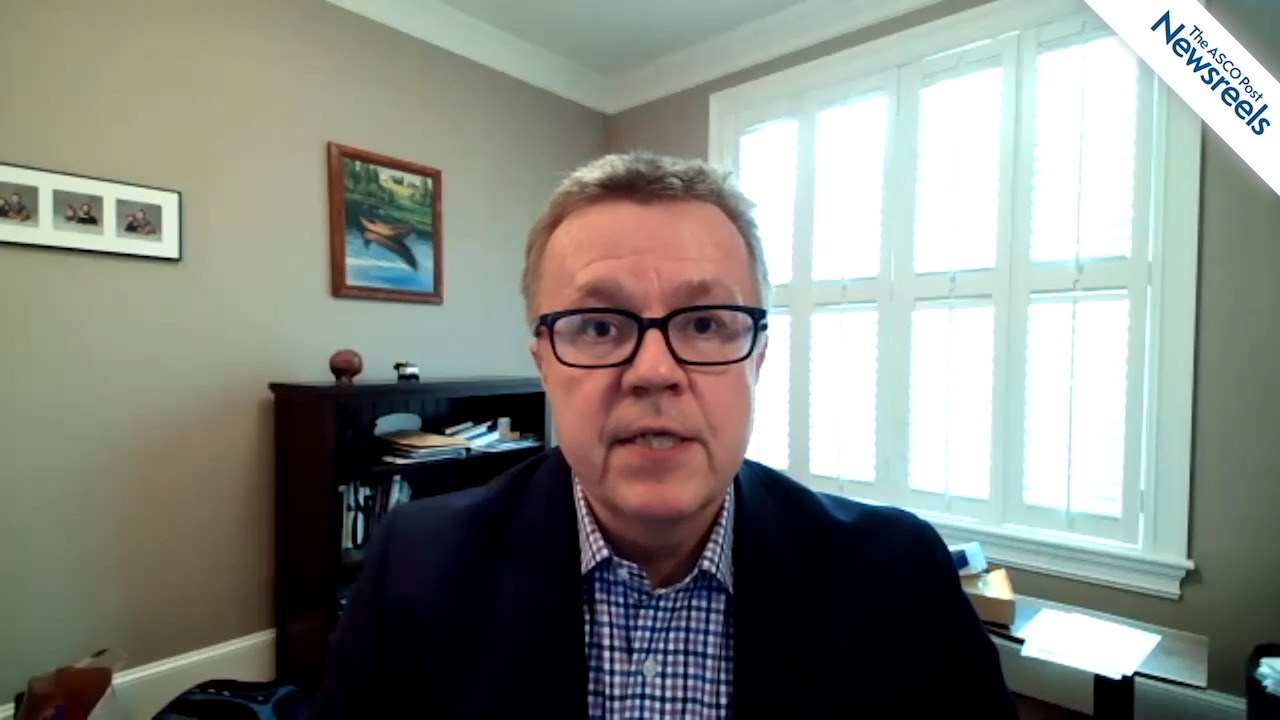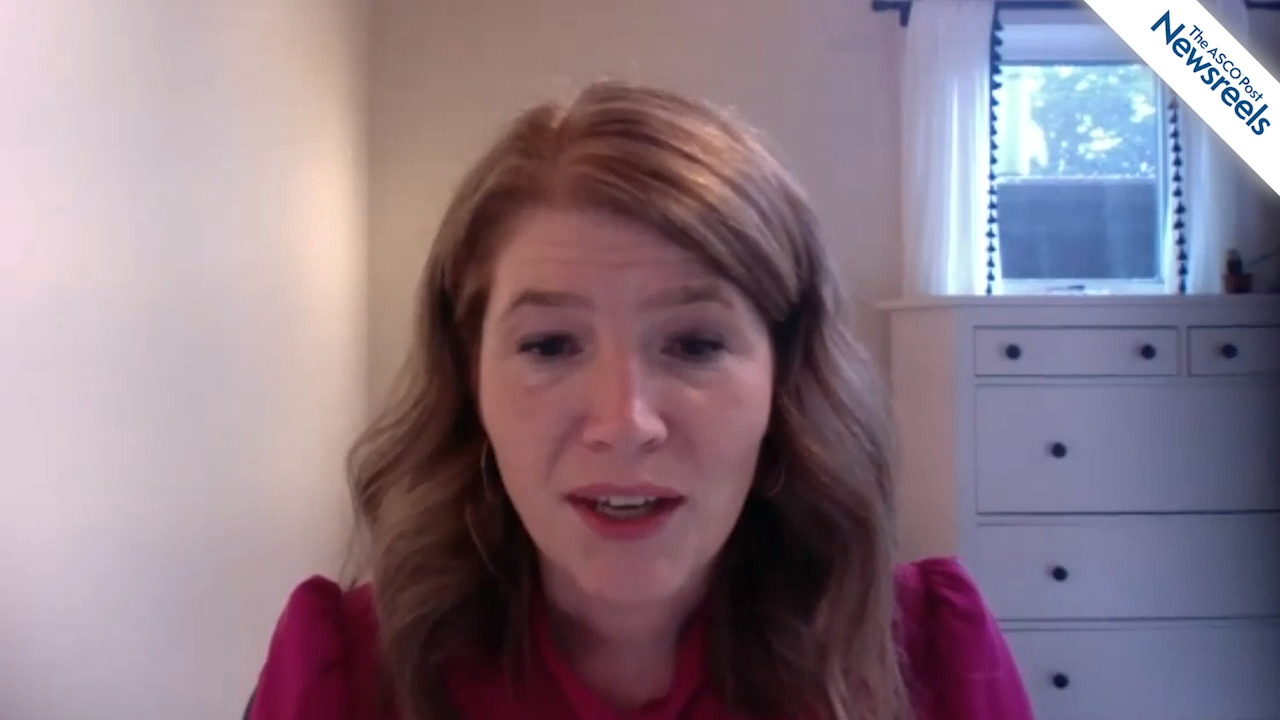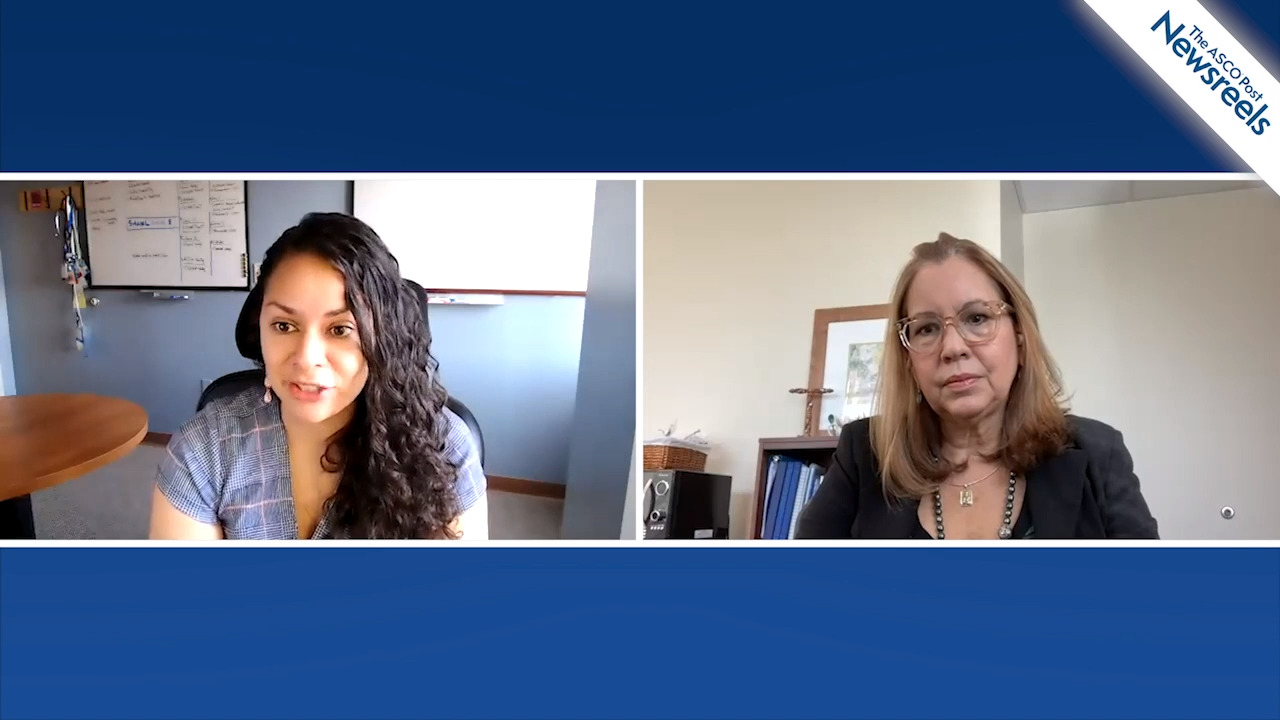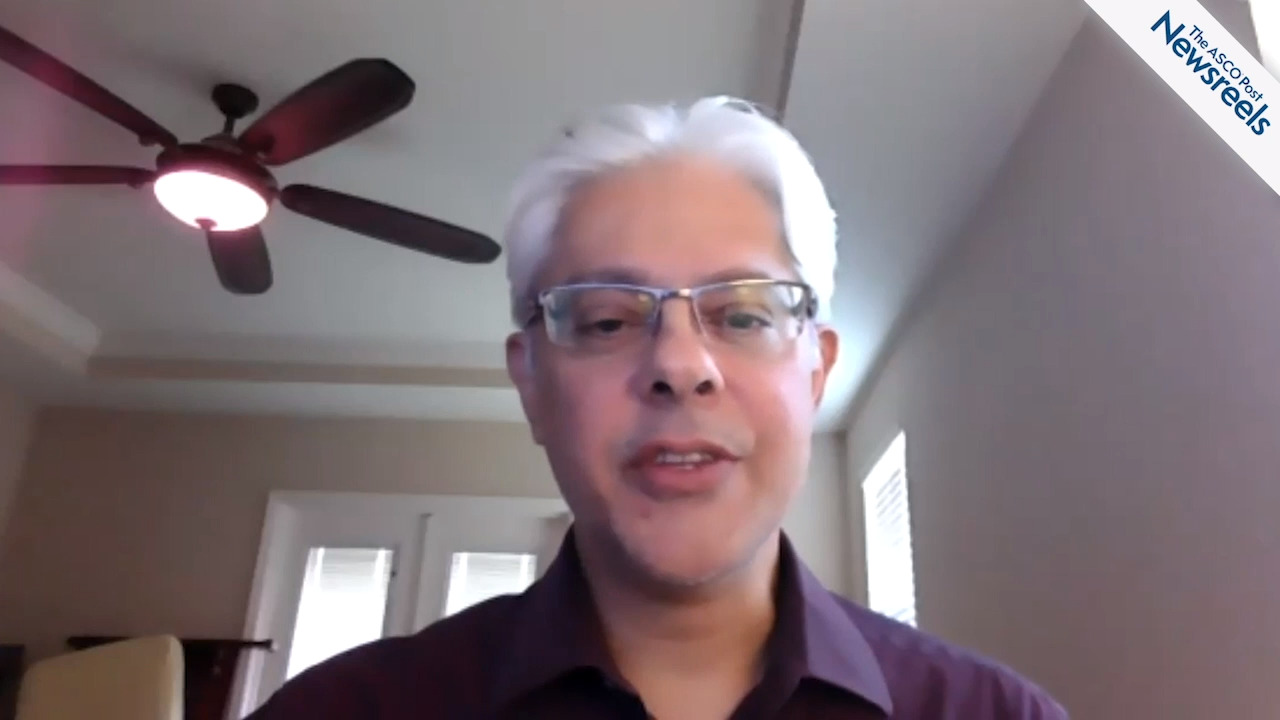Brian K. Link, MD, on Mantle Cell Lymphoma: Expert Perspective on Treatments Now and Those to Come
2021 ASCO Annual Meeting
Brian K. Link, MD, of the University of Iowa Carver College of Medicine, reviews three abstracts on state-of-the-art therapies for mantle cell lymphoma: bendamustine, rituximab, lenalidomide and bortezomib; treatment patterns and outcomes for previously untreated patients; and venetoclax, lenalidomide, and rituximab in newly diagnosed disease (Abstracts 7503, 7504, and 7505).
The ASCO Post Staff
Byoung Chul Cho, MD, PhD, of the Yonsei Cancer Center, discusses study results that showed treatment with the EGFR-MET bispecific antibody amivantamab plus the EGFR inhibitor lazertinib yielded responses in 36% of chemotherapy-naive patients with non–small cell lung cancer whose disease progressed on osimertinib. Genetic biomarkers may be able to identify patients most likely to benefit from the combination regimen (Abstract 9006).
The ASCO Post Staff
Pasi A. Janne, MD, PhD, of Dana-Farber Cancer Institute, discusses study findings that show patritumab deruxtecan is effective in patients with EGFR-mutated and inhibitor-resistant non–small cell lung cancer. Dr. Janne also explains why targeting HER3, a mutation expressed in most EGFR-altered cancers, is a beneficial treatment approach (Abstract 9007).
The ASCO Post Staff
Melinda L. Telli, MD, of Stanford University, discusses results of a phase II study on neoadjuvant talazoparib in germline BRCA1/2 mutation–positive, early HER2-negative breast cancer. In this setting, talazoparib monotherapy was active and yielded pathologic complete response rates comparable to those observed with combination anthracycline and taxane-based chemotherapy regimens (Abstract 505).
The ASCO Post Staff
Narjust Duma, MD, of the Carbone Cancer Center at the University of Wisconsin, Madison, and Gladys I. Rodriguez, MD, of South Texas Oncology and Hematology, talk about the underrepresentation of Hispanic individuals in medicine, especially in oncology, and their efforts to create the first Young Investigator Award in Recognition of an Outstanding Latina Researcher to encourage Hispanic women to enter medicine and cancer research.
The ASCO Post Staff
Bijal D. Shah, MD, of the H. Lee Moffitt Cancer Center, discusses phase II results of the ZUMA-3 study, which evaluated brexucabtagene autoleucel (KTE-X19), an anti-CD19 CAR T-cell therapy, in adults with relapsed or refractory B-cell acute lymphoblastic leukemia (Abstract 7002).





